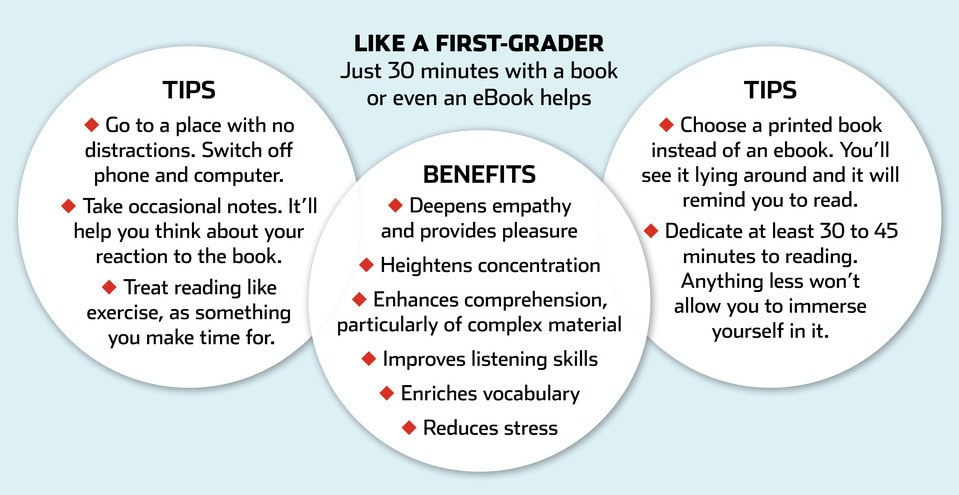9 of the most successful people share their reading habits

The Microsoft founder says he reads 50 books a year, or roughly one book a week.
Image: REUTERS/Rick Wilking
Stay up to date:
Arts and Culture
Most successful people credit reading, in some capacity, as a factor in their success.
A young Elon Musk read for 10 hours each day before growing up to become Tesla CEO. These days, former Microsoft CEO Bill Gates reads a new book every week.
Here's how some of their peers incorporate reading into their own lives.
Warren Buffett
The Berkshire Hathaway magnate reportedly spends five to six hours a day reading five different newspapers.
He also combs through 500 pages of financial documents and recommends prospective investors do the same.
"That's how knowledge works," he recently told an investment class at Columbia University. "It builds up, like compound interest. All of you can do it, but I guarantee not many of you will do it."
Bill Gates
The former Microsoft CEO has attested to reading 50 books a year, or roughly one book a week.
Most of the books are non-fiction dealing with public health, disease, engineering, business, and science.
Every now and then he'll breeze through a novel (and sometimes in one sitting late into the night). But primarily the books serve Gates' interest in learning more about the world he inhabits.
Mark Zuckerberg
In 2015, the Facebook CEO vowed to read one book every other week "with an emphasis on learning about different cultures, beliefs, histories and technologies," he wrote in a Facebook post.
"Books allow you to fully explore a topic and immerse yourself in a deeper way than most media today," he wrote. "I'm looking forward to shifting more of my media diet towards reading books."
Oprah Winfrey
Since 1996, the veteran talk-show host has been advising her viewers' reading habits with Oprah's Book Club. Winfrey has called reading "her personal path to freedom."
"Books allowed me to see a world beyond the front porch of my grandmother's shotgun house," she said in her acceptance speech for the 2004 United Nations Humanitarian Awards, adding that books gave her "the power to see possibilities beyond what was allowed at the time."
Mark Cuban
Dallas Mavericks owner Mark Cuban is a vocal supporter of treating business like a sport, which means he looks for the competitive edge however he can.
Often, that means reading for three hours every day, just to learn more about the industries he works in. Cuban has said this worked wonders at the start of his career.
"Everything I read was public," he wrote in his blog's Success and Motivation Series. "Anyone could buy the same books and magazines. The same information was available to anyone who wanted it. Turns out most people didn't want it."
David Rubenstein
Rubenstein, billionaire cofounder of the private equity firm The Carlyle Group, reportedly reads up to eight newspapers a day and six books a week.
The philanthropist chalks up his extraordinary ability to a laserlike sense of focus.
"From early on, I've been pretty driven," he told The Baltimore Sun in 2010.
Phil Knight
According to The New York Times, the Nikefounder kept the library behind his executive office so sacred that anyone who entered had to remove their shoes and bow.
When asked by the Times in 2007 if he'd preserved the library after stepping down as CEO three years prior, Knight responded with incredulity.
"Of course the library still exists," he said. "I'm always learning."
Elon Musk
Long before he became the CEO of Tesla, and even before he cofounded PayPal, a young Elon Musk was reading science-fiction novels for up to 10 hours a day.
He also reportedly read through the entire Encyclopedia Britannica when he was 9 years old.
He still credits a love of books for his vast knowledge about rockets. When asked how he knew so much about them, he said "I read a lot of books."
Don't miss any update on this topic
Create a free account and access your personalized content collection with our latest publications and analyses.
License and Republishing
World Economic Forum articles may be republished in accordance with the Creative Commons Attribution-NonCommercial-NoDerivatives 4.0 International Public License, and in accordance with our Terms of Use.
The views expressed in this article are those of the author alone and not the World Economic Forum.
Related topics:
Forum Stories newsletter
Bringing you weekly curated insights and analysis on the global issues that matter.
More on Arts and CultureSee all
Benedict Singleton and Marta Ferreira de Sá
July 8, 2025
Claire Poole
June 24, 2025
Joseph Fowler and Kadine James
June 20, 2025
Joseph Fowler
June 16, 2025
Natalia Kucirkova
June 10, 2025






